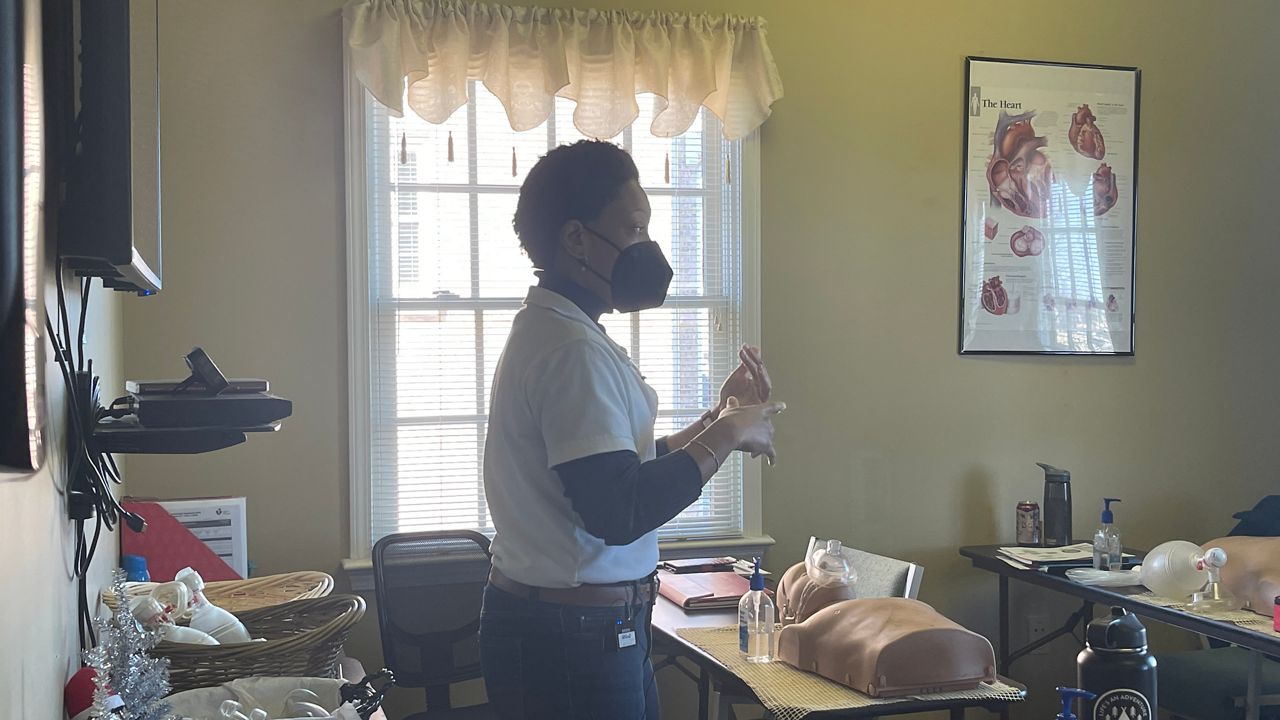LEXINGTON, Ky. — According to the American Heart Association, nearly 350,000 Americans die from cardiac arrest each year.
Cardiopulmonary resuscitation is a global health measure that is continuing to save lives. It’s also what the AHA considers a critical step in the chain of survival outside the hospital when someone is experiencing cardiac arrest.
The life-saving procedure is pretty simple, according to pediatric cardiologist Dr. Micean Johnikin.
“It’s just a matter of placing your hands on someone’s chest and doing compressions downward and at a fast rate and deep enough to compress the heart so that it’s squeezing out blood,” said Johnikin, who is also a training site coordinator for Hearts Matter LLC.

For nearly 8 years, Hearts Matter and Johnikin have focused on taking the life-saving routine beyond just medical professionals. They hope to reach groups that may spread the important message to their family and peers.
Heart specialists and others say the emergency protocol can even make triple the difference when performed in order and immediately.
“The heart stops pumping blood, the patients are going to become unconscious, they’ll collapse and then CPR is the only thing that can save their life. About 90% of cardiac arrests are fatal, but what we know is that chances of survival are at about 30–50% if victims receive CPR within the first five minutes,” Johnikin explained.
Nearly 70% of sudden cardiac arrests can happen right within the home. That’s why Johnikin said CPR training is so vital.
“That’s why we just established Hearts Matter, is to train more people on how to do CPR regardless of if you’re a health care provider or not,” Johnikin said. “You should know this for your loved ones, for your church members, for your friends and family.”
Dr. Johnikin notes that often people of color are less likely to receive bystander CPR and encourages all communities to learn more about how to potentially save a life.



